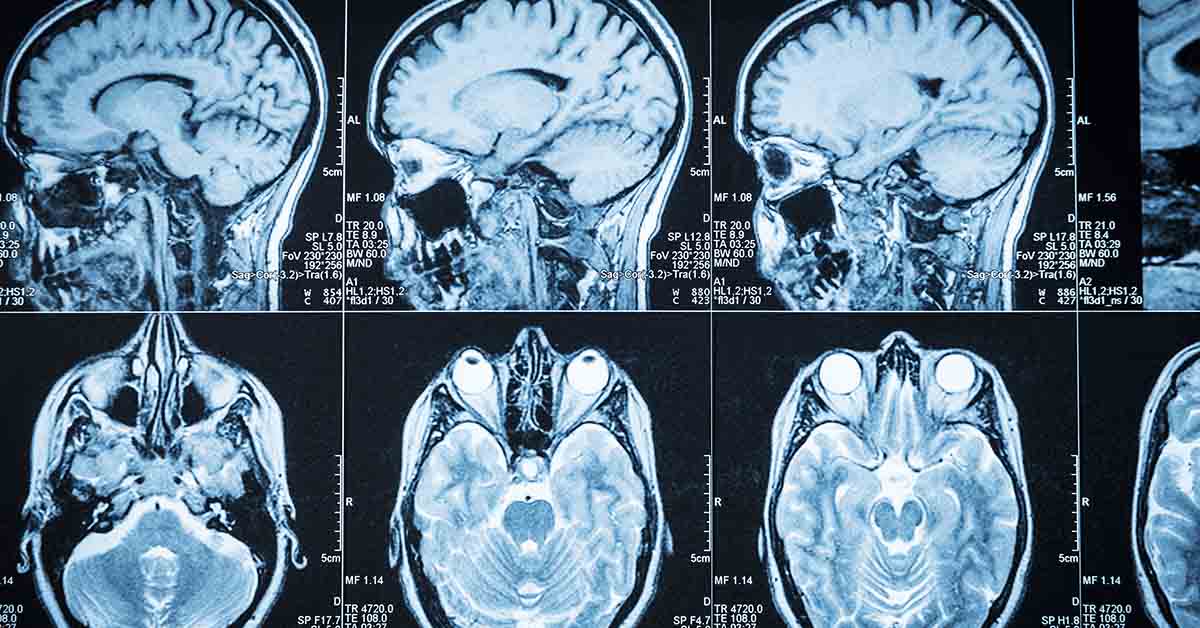One of the number one predictors of longevity is a sharp mind. People who maintain their brain health as they get older tend to live longer and, unsurprisingly, happier lives. The question is, what should you be doing now, at 20, 30, 40, 50, or beyond, to keep a healthy brain long into old age? The answer, it turns out, is not so complex.
15 Things To Do Now To Maintain and Improve Brain Health As You Age
As we age, our brain health becomes increasingly important. Taking steps toward maintaining and improving brain function can greatly impact our quality of life in the long run. Regardless of how old you are, there are many things you can start doing now for your brain’s longevity. Here are 15 things you can start doing to safeguard your brain health and promote cognitive well-being at 80 and beyond.
1. Engage in Regular Aerobic Exercise

Staying physically active is not just important for your body but also for your brain. Engaging in aerobic exercise, such as walking, swimming, or dancing, can help increase oxygen flow to the brain and improve neuroplasticity. It doesn’t need to be overly intense or rigorous – just consistent. Exercise will also help to keep certain physical health parameters in check, which will ultimately improve your brain health. (1)
2. Challenge Your Brain

Like any other muscle in your body, your brain also needs exercise. Engage in mentally stimulating activities like puzzles, reading, musical instrument learning, or playing strategy games to keep your brain active and sharp. This can be as simple as a daily crossword puzzle or sudoku – anything to engage your brain daily. (2, 3)
Read: 8 Useful Herbs for Memory and Brain Health
3. Maintain a Healthy Diet

A well-balanced diet, rich in fruits, vegetables, whole grains, lean proteins, and healthy fats, can provide essential nutrients that contribute to brain health. Include brain-boosting foods like berries, fatty fish, walnuts, and green leafy vegetables in your diet. Avoid junk food, fast food, and processed foods, all of which have a negative impact on the body and brain. (4)
4. Get Sufficient Sleep

Establish a regular sleep routine and ensure you’re getting enough quality sleep. Sleep plays a crucial role in memory consolidation and overall brain function. Restorative, deep sleep has proven to be integral to producing growth hormones, which help preserve healthy brain processes like memory and alertness. Aim for 7-8 hours of uninterrupted sleep each night. (5)
5. Manage Stress

Chronic stress can negatively impact brain health. Incorporate stress-management techniques like meditation, deep breathing exercises, or mindfulness into your daily routine. These will help to promote brain health and well-being. (6)
6. Stay Socially Active

Maintaining an active social life has been associated with better cognitive function. Engage in social activities, join clubs or organizations, and spend time with loved ones. Stay social to keep your brain stimulated and emotionally connected. (7)
7. Protect Your Hearing

Hearing loss has been linked to an increased risk of cognitive decline. Protect your hearing by using ear protection in loud environments. Be sure to schedule regular hearing check-ups to catch any potential problems early. (8)
Read: Vitamin B12 Deficiency and Dementia Symptoms: What You Should Know
8. Avoid Smoking

Smoking (and vaping) has detrimental effects on overall health, including brain function. Quitting smoking can decrease the risk of cognitive decline and improve overall brain health. (9)
Read: Why Some Heavy Smokers Manage To Avoid Lung Cancer Against The Odds
9. Limit Alcohol Consumption

Excessive alcohol consumption can lead to cognitive impairment over time. Some research shows that moderate wine consumption (no more than one, 5-ounce glass per day) can actually improve brain health (10). However, some newer research shows that no alcohol is good for general health. Practice moderation and limit your alcohol intake to promote long-term brain health.
10. Control Blood Pressure

Maintain healthy blood pressure levels, as hypertension has been linked to an increased risk of cognitive decline. Regular exercise, a healthy diet, and managing stress can all contribute to controlling blood pressure. (11)
11. Stimulate Your Senses

Engage your senses in various ways to keep your brain active and stimulated. Try new experiences, listen to music, enjoy different flavors and smells, and appreciate the beauty around you. Not only will this improve your brain health, but it will also help you to stay present, slow down, and appreciate the small joys of living. This will help to improve your stress and mental well-being, and therefore prolong your life. (12)
12. Keep Learning

Contrary to popular belief, you can teach an old dog new tricks. Never stop learning! Engaging in new activities or learning new skills can help build cognitive resilience and enhance brain function. Take up a new hobby, enroll in a course, or learn a new language. (13)
13. Protect Your Head

Head injuries can have long-term consequences on brain health. Wear protective gear during activities that pose a risk of head injury, and always use seat belts while driving. When cycling, skiing, or other high fall-risk activities, always wear a helmet. (14)
14. Manage Chronic Conditions

Diabetes isn’t the only condition that can affect the health of your brain. Take proactive steps to manage chronic conditions like heart disease, obesity, and high cholesterol. These conditions, if left uncontrolled, can increase the risk of cognitive decline. (15)
Read: 10 Natural Home Remedies To Help Lower High Blood Pressure
15. Maintain a Positive Attitude

The longest-living, happiest people are the ones who smile in the face of adversity. Life isn’t always easy, but a negative attitude towards it doesn’t improve it. Cultivate a positive attitude towards aging and life in general. Individuals with a positive outlook on life tend to have better brain health as they age. What’s better? They enjoy their extra years even more. (16)
The Bottom Line
By following these 15 practices, you can contribute to maintaining and enhancing your brain health as you approach 80 and beyond. Remember, it’s never too late to start taking care of your brain, and the benefits will extend far into your later years.
Keep Reading: Before Dementia Sets in, Your Body Will Give You These 12 Early Warning Signs
Sources
- “Association of Accelerometer-Measured Light-Intensity Physical Activity With Brain Volume The Framingham Heart Study.” Jama Network. Nicole L. Spartano, PhD, et al. April 19, 2019.
- “The relationship between the frequency of number-puzzle use and baseline cognitive function in a large online sample of adults aged 50 and over.” Wiley. Helen Brooker, et al. February 2019.
- “An online investigation of the relationship between the frequency of word puzzle use and cognitive function in a large sample of older adults.” Wiley. Helen Brooker, et al. November 2018
- “Researchers observe that there is a link between healthy eating and healthy living, including benefits extending to healthy brain aging.“ Pacific Neuro Science Institute.
- “Growth hormone in the brain: characteristics of specific brain targets for the hormone and their functional significance.” Pubmed. F Nyberg. October 2000.
- “Estimating brain age using high-resolution pattern recognition: Younger brains in long-term meditation practitioners.” Neuro. Eileen Luders, et al.
- “Associations between social relationship measures, serum brain-derived neurotrophic factor, and risk of stroke and dementia.” Wiley. Joel Salinas, et al. March 22, 2017.
- “The relationship between hearing loss and cognitive decline.” Oticon.
- “Everything to know about how smoking affects the brain.” Medical News Today. Sarah Vevers. July 21, 2023.
- “Beneficial effects of low alcohol exposure, but adverse effects of high alcohol intake on glymphatic function.” Nature. Iben Lundgaard, et al. February 2, 2018.
- “High blood pressure is linked to cognitive decline.” NIH. June 16, 2016.
- “What Is Sensory Stimulation?” Healthline. Scott Frothingham. September 10, 2020.
- “Participatory Arts for Older Adults: A Review of Benefits and Challenges.” NCBI. Tony Noice, et al. December 2013.
- “Three or more concussions linked with worse brain function in later life.” OX. January 31, 2023.
- “Chronic Diseases and Cognitive Decline — A Public Health Issue.” CDC
- “The Power of Positive Thinking.” Hopkins Medicine

